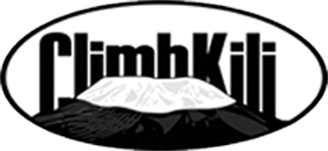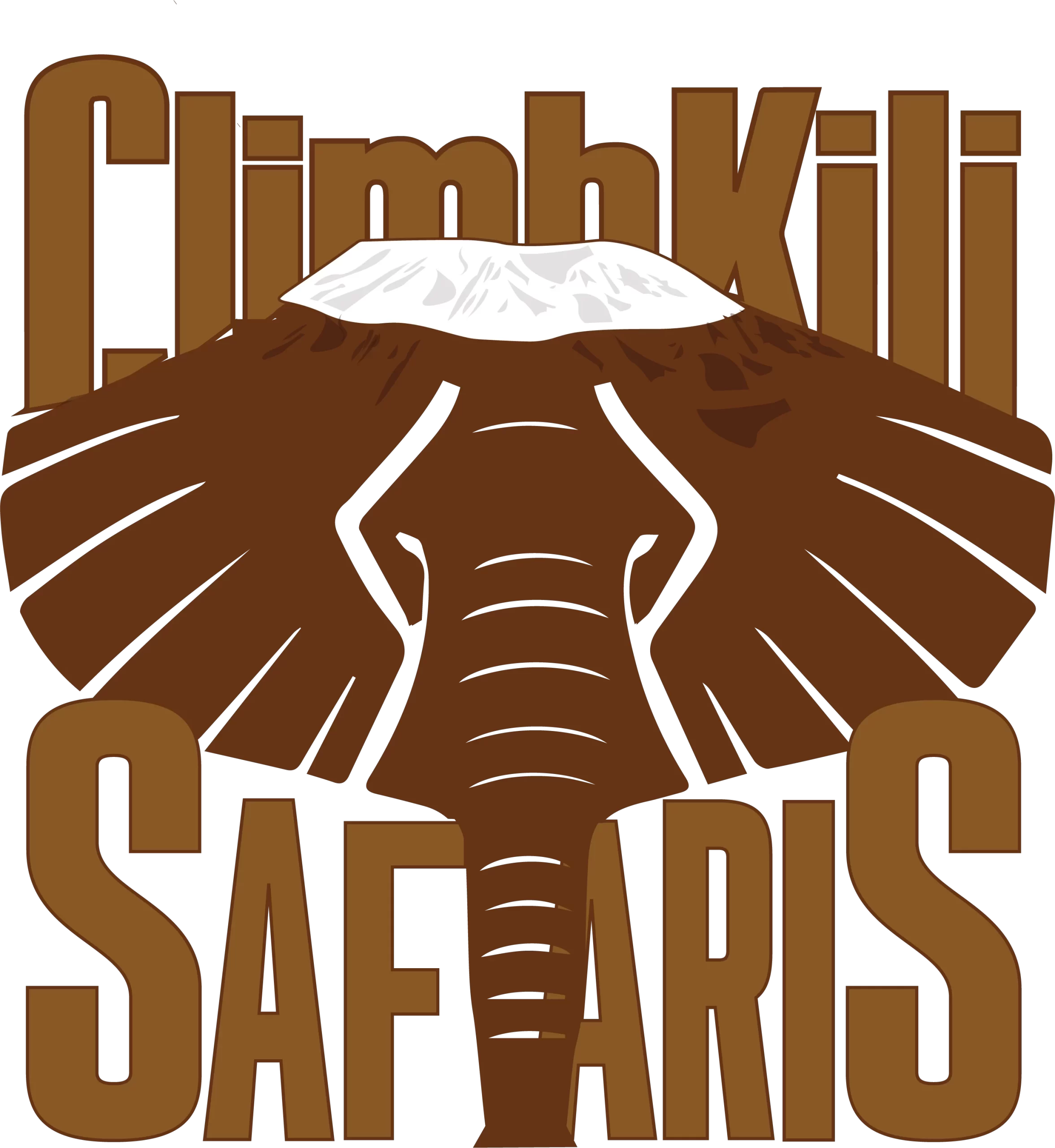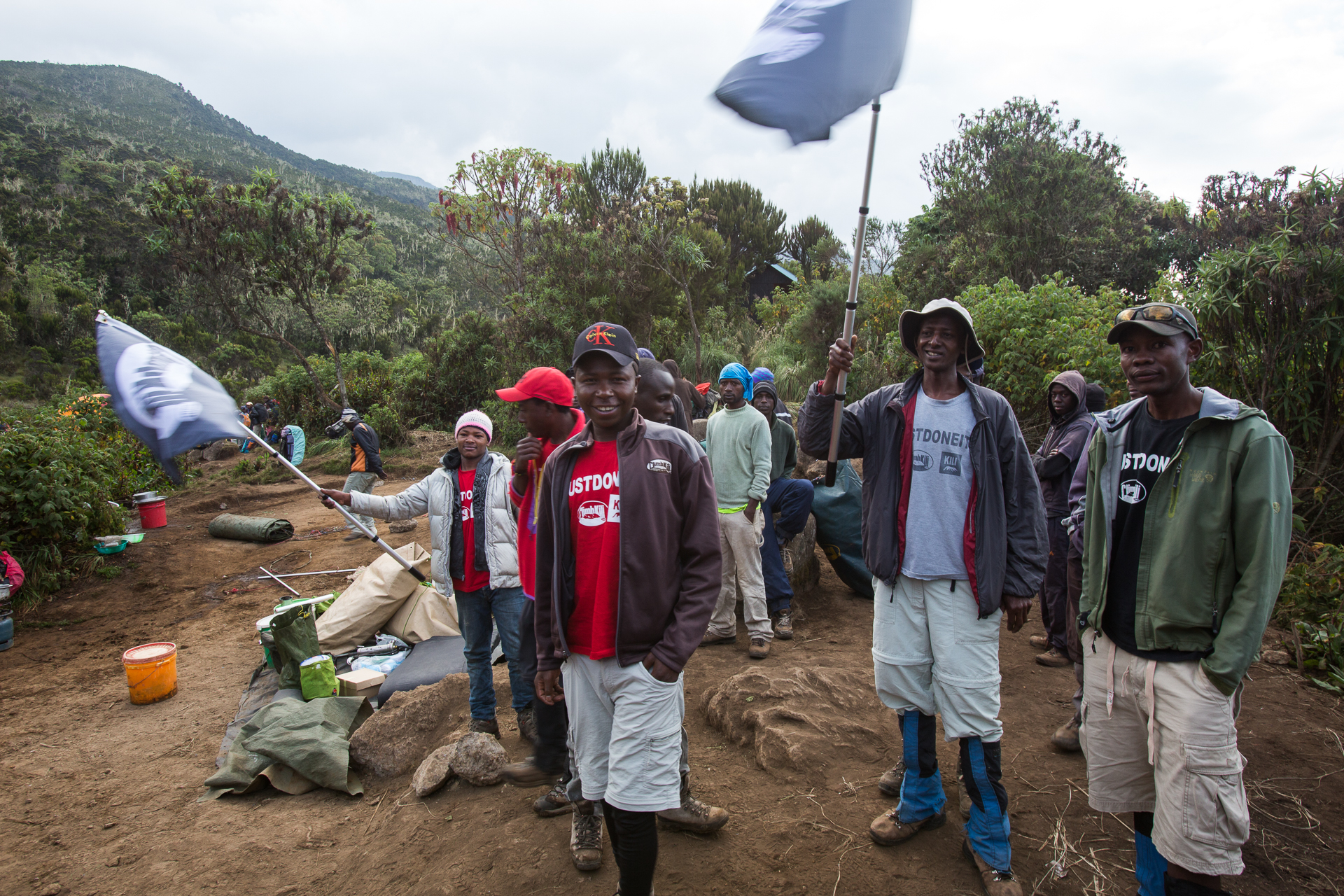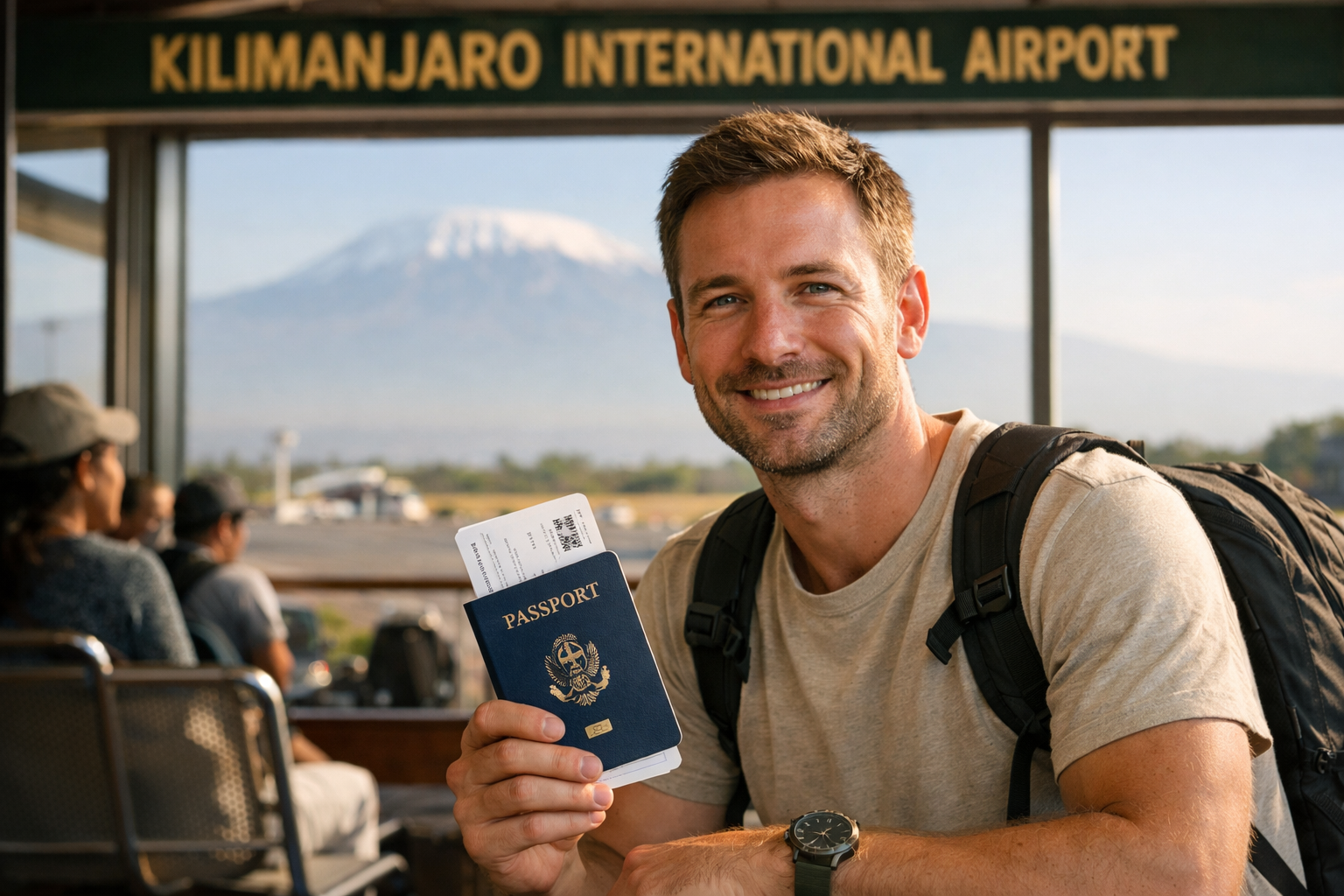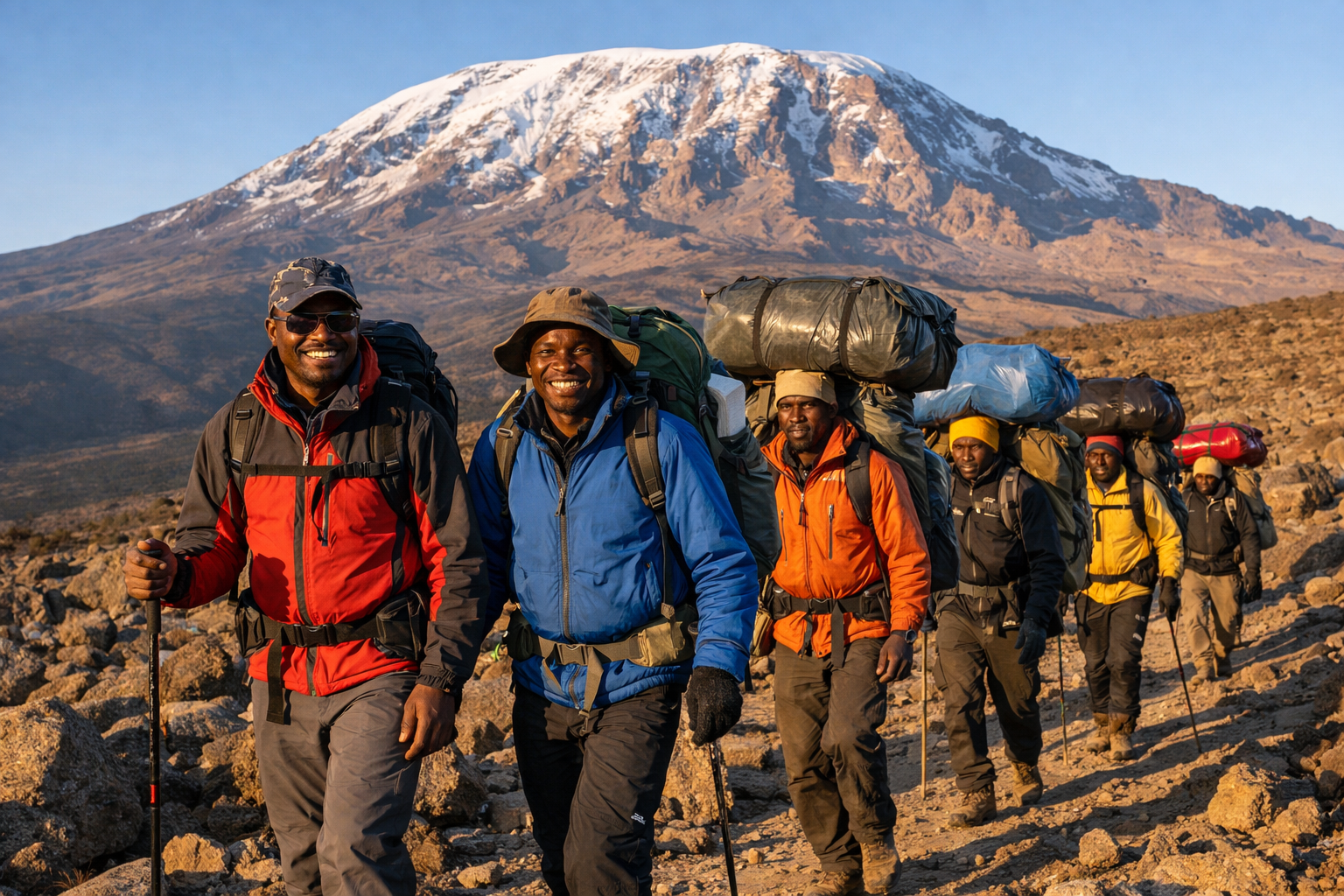Climbing Mount Kilimanjaro is an unforgettable journey, but it’s not without its challenges. From unpredictable weather to the effects of high altitude, safety must be your top priority. At Climb Kili, we understand the importance of ensuring every trekker’s safety, comfort, and success. Our comprehensive approach combines expert guidance, advanced safety measures, and personalized care, allowing you to focus on the adventure while we handle the rest
1. Expertly Trained Guides with Local Knowledge
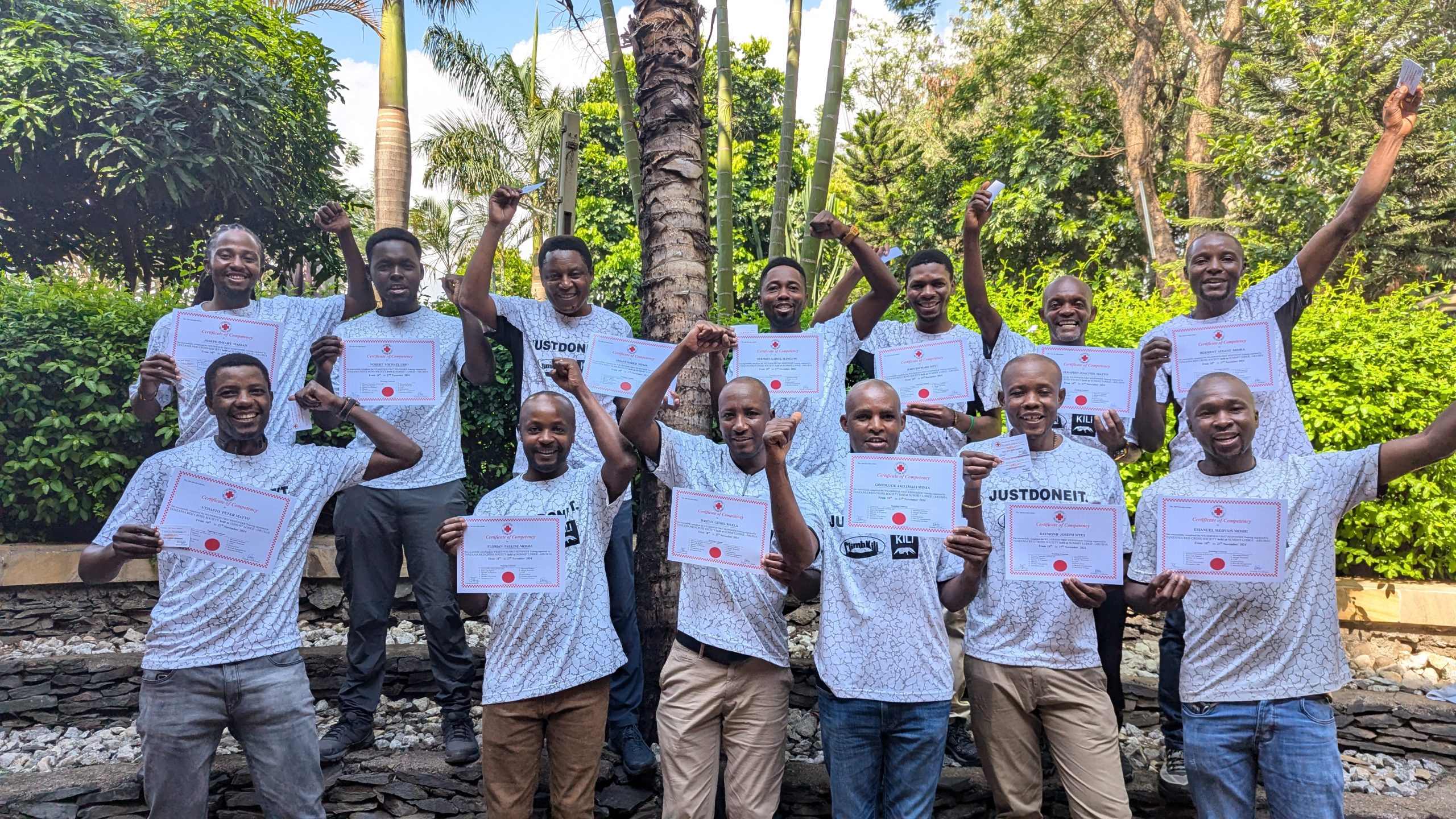
Climb Kili’s guides are the backbone of our safety strategy. As locals with years of experience on Kilimanjaro, they possess an intimate knowledge of the mountain’s routes, weather patterns, and potential challenges.
- Certified Training: Our guides are Wilderness First Responder (WFR) certified, equipped to handle altitude-related and medical emergencies.
- Daily Health Monitoring: Guides conduct twice-daily checks on climbers’ oxygen levels, heart rate, and general condition.
- Route Expertise: Whether you choose the Lemosho, Machame, or Rongai route, our guides know the terrain inside and out, ensuring you take the safest and most scenic paths.
With Climb Kili, you’re always in capable hands.
2. Comprehensive Safety Equipment
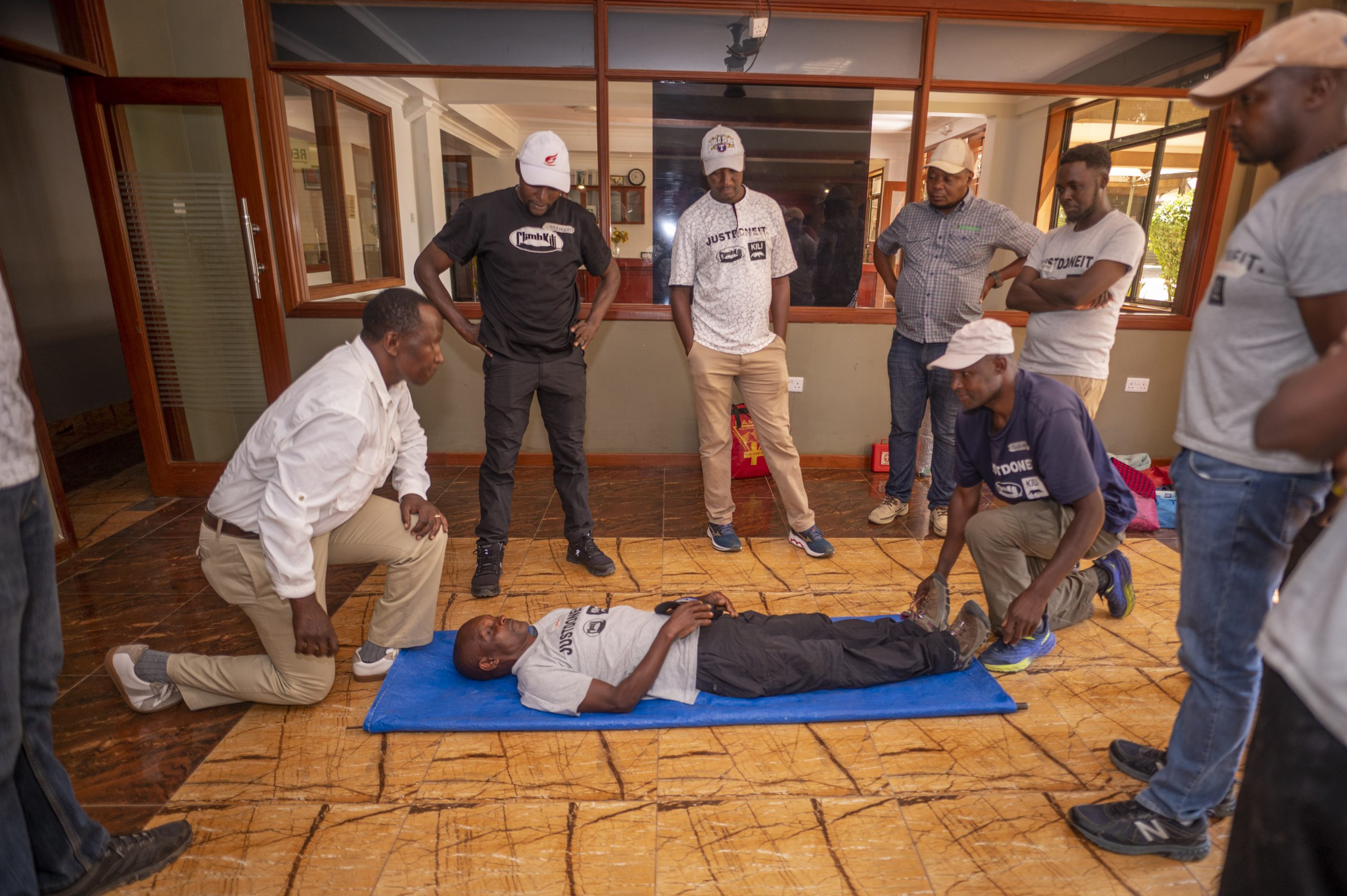
We leave nothing to chance when it comes to your safety. Each trek is equipped with:
- Portable Oxygen Systems: Available at all times to manage altitude sickness.
- First Aid Kits: Stocked with essentials for common injuries or illnesses.
- Walkie-Talkies: Guides stay connected with base camp staff and rangers for real-time communication and support.
- Stretchers: Lightweight, portable stretchers are available for emergency evacuations.
This robust preparation ensures that we’re ready for any scenario.
3. Focus on Altitude Acclimatization
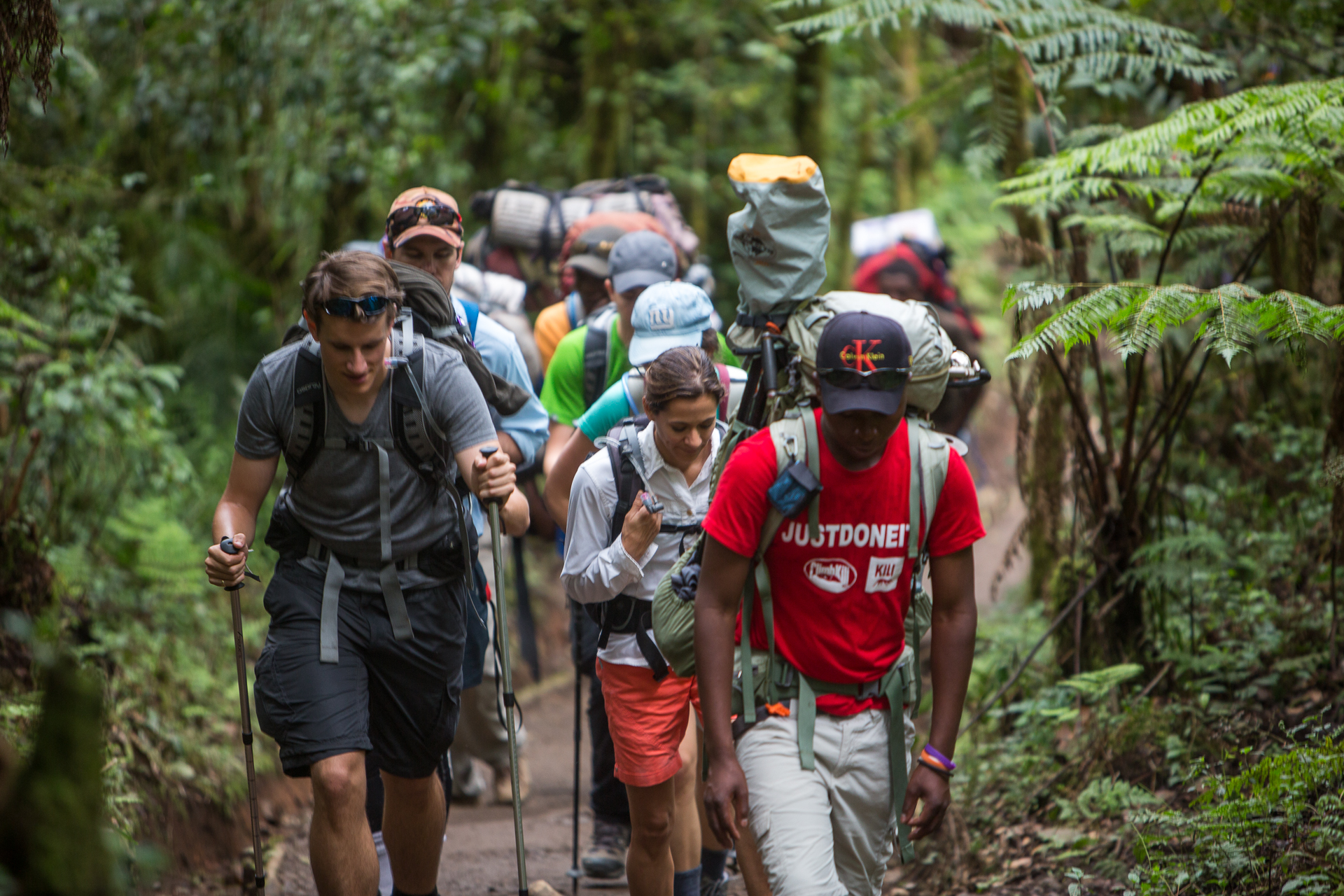
One of the biggest challenges of climbing Kilimanjaro is adjusting to the high altitude. Our itineraries are designed with acclimatization in mind:
- Pole Pole Pace: Translating to “slowly, slowly” in Swahili, this mantra helps climbers conserve energy and adjust to the altitude.
- Acclimatization Days: Additional days on the mountain are built into the itinerary to allow your body to adapt gradually.
- Monitor and Educate: Guides educate climbers on the signs of Acute Mountain Sickness (AMS) and how to respond appropriately.
This careful planning increases your chances of a successful and safe summit.
4. Nutritious and Energy-Packed Meals
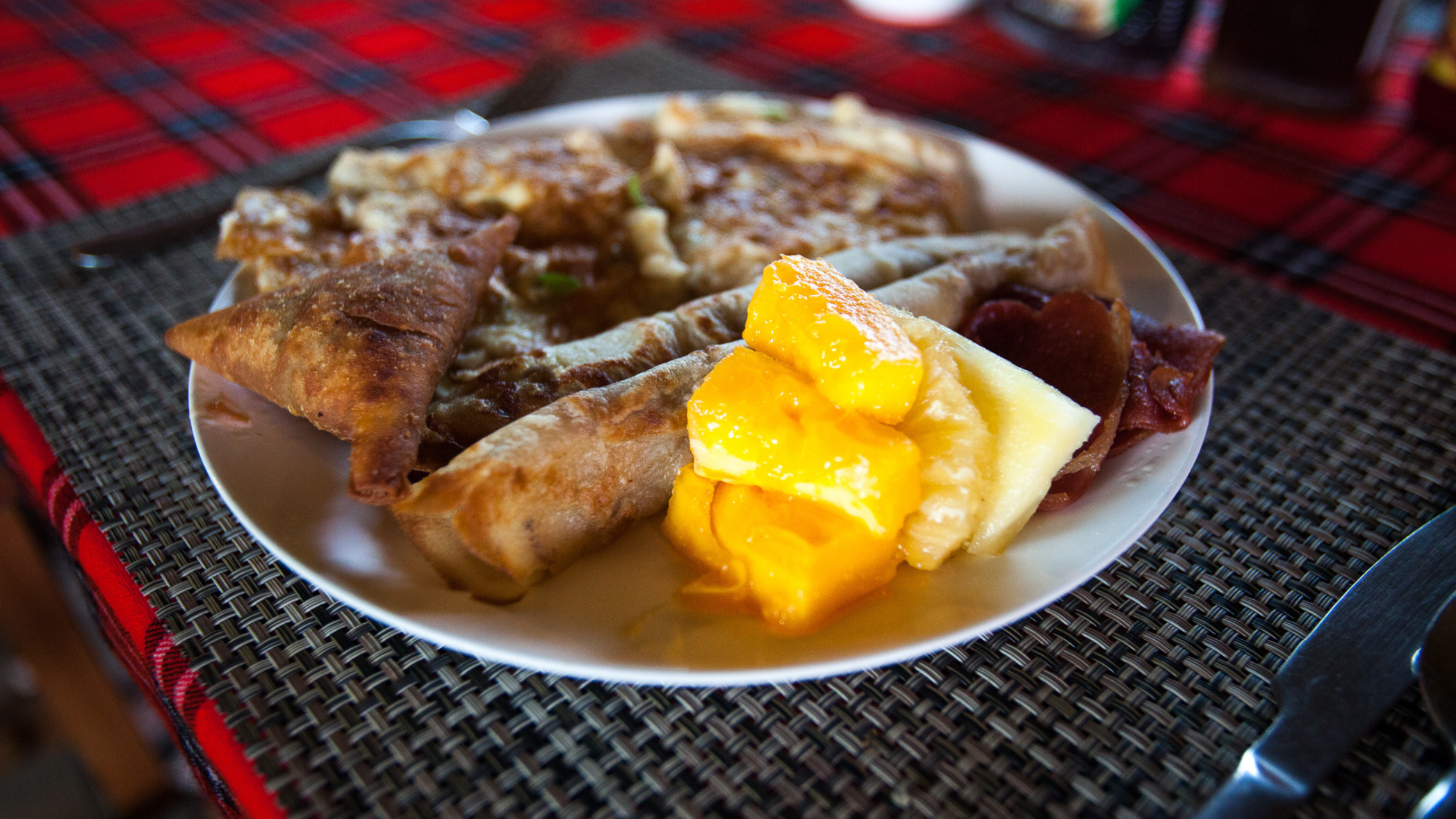
Fueling your body correctly is vital for enduring the physical demands of the trek. Climb Kili provides:
- High-Calorie Meals: Balanced with carbohydrates, proteins, and fats to keep you energized.
- Dietary Accommodations: From vegetarian to gluten-free diets, we cater to your needs.
- Hydration Focus: Regular reminders and ample water supplies help you combat dehydration, a common issue at altitude.
Proper nutrition ensures you’re physically prepared to conquer the mountain.
5. Ethical Porter Treatment for Enhanced Team Support
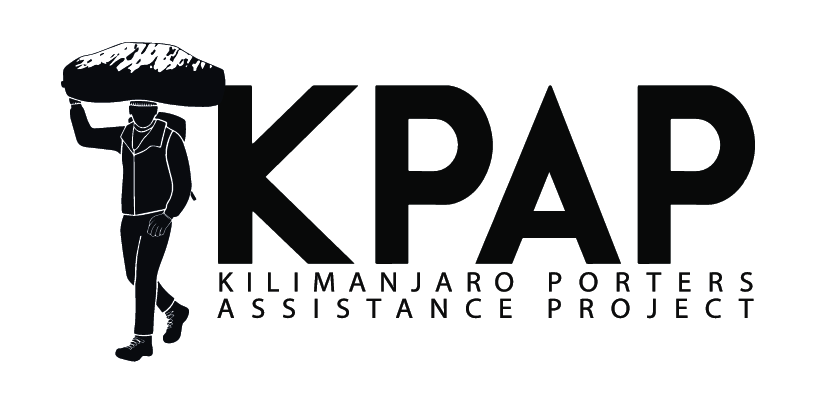
Our porters are not just staff—they’re the heart of every climb. Ensuring their well-being directly impacts the success and safety of the trek.
- Fair Wages and Gear: Our porters receive competitive pay and proper equipment to handle mountain conditions.
- Porter Assistance: They carry essential items, allowing climbers to focus on the trek.
- KPAP Partnership: As a member of the Kilimanjaro Porters Assistance Project (KPAP), we adhere to ethical practices.
A happy and well-supported team means a better overall experience for our climbers.
6. Tailored Itineraries for All Fitness Levels

Not every climber approaches Kilimanjaro with the same level of experience or fitness. That’s why we offer:
- Customized Routes: Options like the scenic Lemosho route for gradual ascents or the challenging Umbwe route for experienced hikers.
- Pre-Trek Consultation: Advice on physical preparation and choosing the best itinerary for your abilities.
- Smaller Group Sizes: Ensures personalized attention from guides, enhancing safety and support.
Our tailored approach helps climbers of all backgrounds feel confident and prepared.
7. Real-Time Weather Monitoring
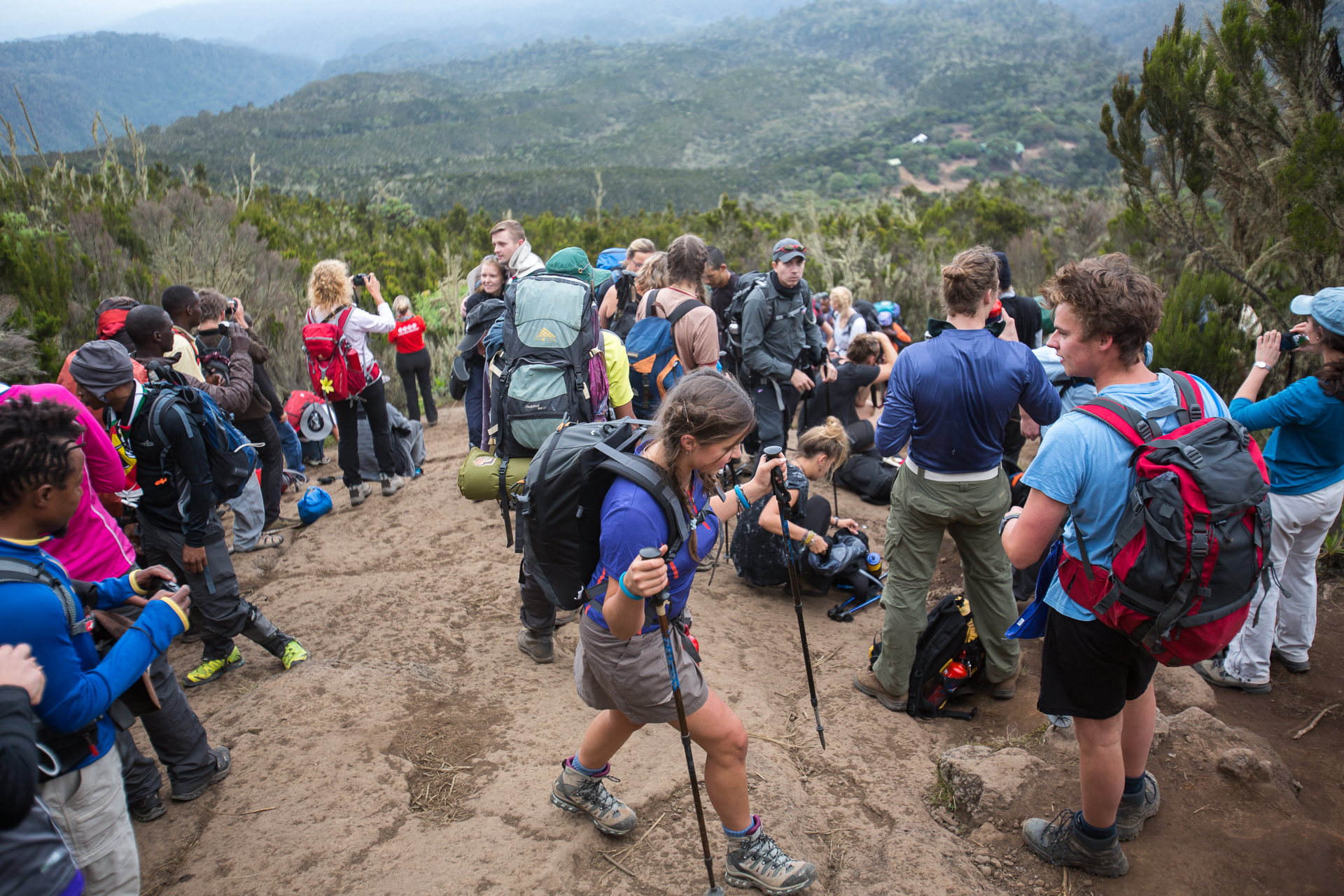
Kilimanjaro’s weather can change rapidly, but we’re always prepared:
- Daily Weather Updates: Guides receive regular forecasts to adjust plans as needed.
- Flexible Itineraries: Our team can adapt to sudden weather changes to keep the group safe.
- Expert Navigation: Guides are trained to handle low visibility or inclement weather conditions.
By staying proactive, we help you navigate the mountain’s challenges safely.
8. Proven Track Record of Summit Success

With thousands of climbers reaching Uhuru Peak each year, Climb Kili boasts one of the highest summit success rates in the industry. Our focus on safety, preparation, and personalized care contributes directly to this achievement.
FAQ: Safety with Climb Kili
What safety equipment does Climb Kili provide?
We supply portable oxygen, first aid kits, walkie-talkies, and emergency stretchers on all treks.
How does Climb Kili manage altitude sickness?
Our guides monitor climbers’ health daily, follow a slow ascent pace, and schedule acclimatization days to minimize risks.
What is the role of the guides during emergencies?
Guides are trained in Wilderness First Response and can handle medical emergencies or organize evacuations efficiently.
Are treks suitable for first-time climbers?
Yes! Climb Kili offers tailored itineraries, pre-trek advice, and expert guidance to ensure everyone feels prepared.
Why Climb Kili Is Your Safest Choice for Kilimanjaro
At Climb Kili, safety isn’t just a priority—it’s the foundation of everything we do. From our expert guides and ethical practices to our state-of-the-art equipment and personalized care, we ensure you’re fully supported every step of the way.
Join us for a life-changing adventure and experience the magic of Kilimanjaro with confidence. Let Climb Kili guide you to the summit safely and successfully.
Tutaonana juu ya mlima (See you on the mountain) 💚🏔️
